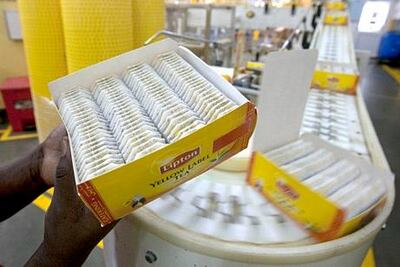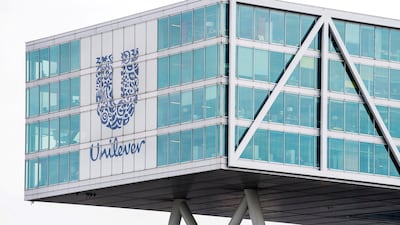One of the world’s largest food groups has pledged to put carbon footprint labels on 30,000 of its products within the next six months.
Unilever, which makes more than 75,000 products, will introduce badges that will reveal each item's cost to the planet.
The food giant, whose range includes Magnum ice-cream, Pot Noodle, Marmite and Hellmann’s mayonnaise, is the first major company to introduce such a move.
It is expected to pilot labels on up to two dozen products in Europe or North America and then slowly roll them out across its entire range over the next two to five years.
The firm is also urging British supermarkets to introduce carbon-friendly aisles, similar to vegetarian aisles.
“While the world is dealing with the devastating effects of the Covid-19 pandemic, and grappling with serious issues of inequality, we can’t let ourselves forget that the climate crisis is still a threat to all of us. Climate change, nature degradation, biodiversity decline, water scarcity – all these issues are interconnected, and we must address them all simultaneously," Alan Jope, Unilever's CEO, said.
"In doing so, we must also recognise that the climate crisis is not only an environmental emergency; it also has a terrible impact on lives and livelihoods. We, therefore, have a responsibility to help tackle the crisis: as a business, and through direct action by our brands.”
Marc Engel, Unilever’s global head of supply chain, said its market research has shown that younger consumers are very concerned about climate change.
“We intend to roll out carbon labels on our entire product range over the next two to five years and believe it will transform not only the actions of consumers, but of the thousands of businesses in our supply chain as well," he told the Independent.
Last year, Unilever vowed to achieve Net Zero emissions from all products by 2039 and pledged to work with a new generation of farmers and smallholders to drive programmes to protect and restore forests, soil and biodiversity.

It has pledged to invest €1 billion ($1.2bn) in a new dedicated Climate & Nature Fund, which will be used over the next 10 years to fund projects set to include landscape restoration, reforestation, carbon sequestration, wildlife protection and water preservation.
The company has also committed to achieving a deforestation-free supply chain by 2023.
On Thursday, the government's food tzar Henry Dimbleby launched his National Food Strategy, which is urging the Food Standards Agency to work with industry bodies to create a consistent food-labelling system.
Chairwoman of the UK's Food Standard Agency, Professor Susan Jebb, said the food system was facing urgent challenges.
“The National Food Strategy report deserves to be widely read and deeply considered by everyone with responsibilities for any part of our food system," she said.
"Its compelling narrative focuses attention on the urgent challenges facing the food system and how we must work together, across government and industry, to create a system which is good for the health of people and the planet."


